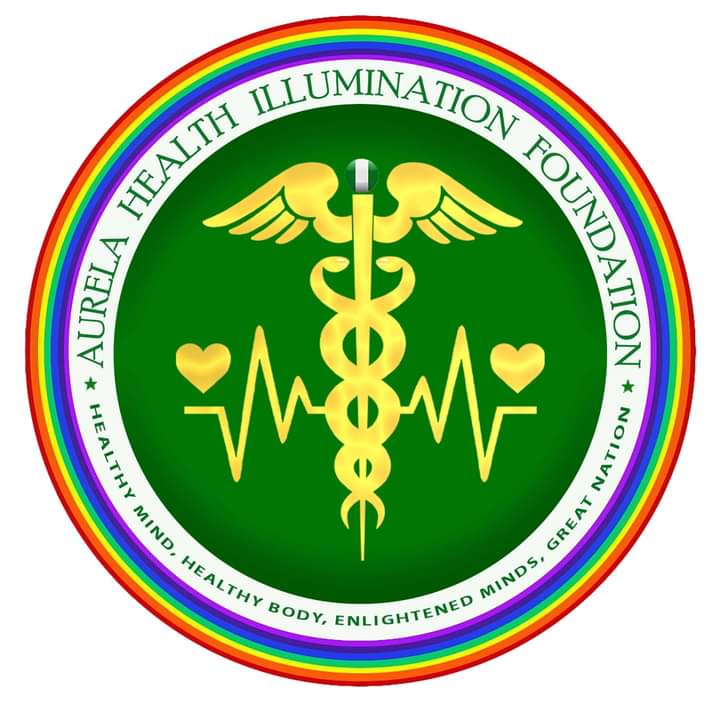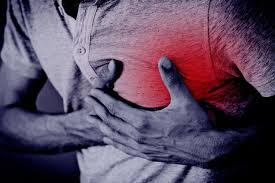A tragic incident shook me deeply, my son’s classmate, a seventeen-year-old girl who was diligently preparing for her school certificate examination, suddenly slumped and died just days before the exam. The news was heartbreaking and left me with so many questions. How could someone so young, full of life and potential, die so suddenly? Until then, I had mostly heard of sudden deaths among older, working-class individuals. But this incident revealed a different, more alarming reality. It was later discovered that she had an undiagnosed heart condition.
This heartbreaking event made me look deeper into the issue of sudden death. While exact statistics are hard to come by, findings suggest that sudden death accounts for a significant number of fatalities globally, affecting people across all age groups—not just the elderly. Even more eye-opening is research indicating that males may be more affected than females, with some studies showing a male to female ratio as high as five to one.
This raises a critical need for awareness, early health screening, and education on warning signs. Sudden death is not limited to any age, gender, or lifestyle. Knowing the risks and taking proactive steps could save lives—especially among our young people, who are often thought to be the healthiest.
Sudden death, sometimes referred to as sudden cardiac death when related to heart issues, is not a specific disease but rather a manner of dying. It describes a death that occurs unexpectedly, often within a short period after the first signs of symptoms. It is mainly marked by the sudden stopping of the heart, although other underlying causes may also play a role. In forensic pathology, sudden death is commonly defined as death that happens within a specific timeframe, typically within one hour of the onset of symptoms or within twenty-four hours of being seen in a healthy condition.
It is both alarming and important to understand that sudden death is not caused by violence, trauma, or any intentional act. What makes it especially frightening is that it can strike individuals who seem perfectly healthy, often without any warning signs or symptoms.
The causes of sudden collapse and death can be complex and are generally grouped into cardiac and non-cardiac origins. Among the most common cardiac causes is coronary artery disease, where blockages in the heart’s blood vessels can trigger a heart attack or lead to sudden cardiac arrest. In some cases, the heart may suddenly stop beating due to electrical disturbances, known as arrhythmias, even without a previous diagnosis of heart disease.
This highlights the urgent need for awareness, early screening, and education. Many people walk around unaware of silent conditions that could turn deadly in moments. Understanding these risks and prioritizing heart health could be the key to preventing avoidable tragedies.
Certainly! Here’s a more engaging, educational, and reader-friendly version of the text, rewritten for clarity, flow, and impact:
Understanding the Causes and Prevention of Sudden Death
Sudden death is a deeply unsettling event, especially when it occurs without warning in seemingly healthy individuals. While often linked to the heart, it can be caused by a wide range of medical conditions—both cardiac and non-cardiac—and understanding these causes is key to prevention.
Cardiac Causes of Sudden Death
Several hidden heart conditions can dramatically increase the risk of sudden death:
Hypertrophic Cardiomyopathy – This condition involves abnormal thickening of the heart muscle, making it harder for the heart to pump blood. It is one of the most common causes of sudden death in young athletes.
Arrhythmogenic Right Ventricular Dysplasia – A rare disease in which heart muscle is replaced by fatty or fibrous tissue, disrupting the heart’s rhythm and leading to sudden cardiac arrest.
Brugada Syndrome – A genetic disorder that affects the heart’s electrical activity, causing fainting, seizures, or sudden cardiac death, often during sleep.
Coronary Artery Disease – The most common cause in older adults, where blocked arteries can lead to heart attacks or sudden cardiac arrest.
Arrhythmias – Abnormal heart rhythms, especially when undiagnosed, can cause the heart to beat irregularly or stop altogether.
Non-Cardiac Causes of Sudden Death
Sudden death can also result from various non-heart-related issues:
Pulmonary Embolism – A blood clot in the lungs can block blood flow, leading to sudden collapse and death.
Stroke – Interruption of blood flow to the brain can cause rapid unconsciousness and death if severe.
Anaphylaxis – A severe allergic reaction can trigger a sudden drop in blood pressure and blocked airways.
Brain Hemorrhage – Sudden bleeding in the brain can lead to instant unconsciousness and death.
Severe Hypertension – A sudden spike in blood pressure can lead to a stroke or tearing of the aorta (aortic dissection), both potentially fatal.
Seizures – In rare cases, seizures can lead to sudden collapse and death, especially if not managed properly.
Drug Overdose – Certain substances can depress breathing or cause the heart to stop.
Infectious Diseases – Some infections can inflame the heart or brain, leading to sudden failure of these vital organs.
Electrolyte Imbalance – Low or high levels of key minerals like potassium or magnesium can disrupt heart rhythms and cause cardiac arrest.
Severe Injuries – Trauma to the head or chest, especially during accidents or sports, can lead to immediate death.
Risk Factors and Genetics
Many of these conditions have a genetic component, which means a family history of heart disease, high blood pressure, or high cholesterol increases risk. Lifestyle choices like smoking, poor diet, and lack of exercise also play a significant role. Even common fainting episodes like vasovagal syncope, triggered by stress or pain, can occasionally lead to dangerous drops in heart rate and blood pressure.
Risk also varies by age. For instance, young athletes are more prone to conditions like hypertrophic cardiomyopathy, while older adults are more likely to suffer from coronary artery disease. Overexertion during intense physical activity, especially without proper conditioning, can push an undiagnosed heart to its limits.
Prevention: What You Can Do to Lower the Risk
While sudden death cannot always be predicted, you can take proactive steps to lower your risk—especially when it comes to heart health.
Here are key lifestyle and medical steps you can take:
Live Heart-Healthy
Eat a balanced diet rich in fruits, vegetables, and whole grains
Limit salt, saturated fats, trans fats, and cholesterol
Avoid smoking completely
Drink alcohol in moderation or not at all
Maintain a healthy weight to reduce strain on the heart
Engage in at least thirty minutes of moderate physical activity most days
Monitor Your Health Regularly
Check your blood pressure, blood sugar, and cholesterol regularly
Know your family history and share it with your doctor
Discuss appropriate screenings or tests based on your age and risk factors
Work With Your Doctor
Use prescribed medications to manage high blood pressure, diabetes, or cholesterol
Ask about heart screening tests like an ECG or echocardiogram if you have symptoms or family history
Keep regular appointments and do not ignore unusual symptoms such as chest pain, fainting, or palpitations
Be Aware and Act Fast
Learn the early signs of a heart attack or stroke and seek immediate help if they occur
If you have experienced a cardiac event before, follow all recommendations to prevent recurrence
Manage Stress Effectively
Practice stress-reducing activities such as deep breathing, meditation, or yoga
Prioritise sleep, relaxation, and emotional well-being as part of your health plan
In Summary:
Sudden death can affect anyone—young or old, male or female, athlete or non-athlete. But many cases are preventable through awareness, early detection, and healthy living. The time to act is now. By taking responsibility for your health, getting regular checkups, and making smart lifestyle choices, you can reduce your risk and protect not just your life, but the peace of mind of those who love you.




No comment